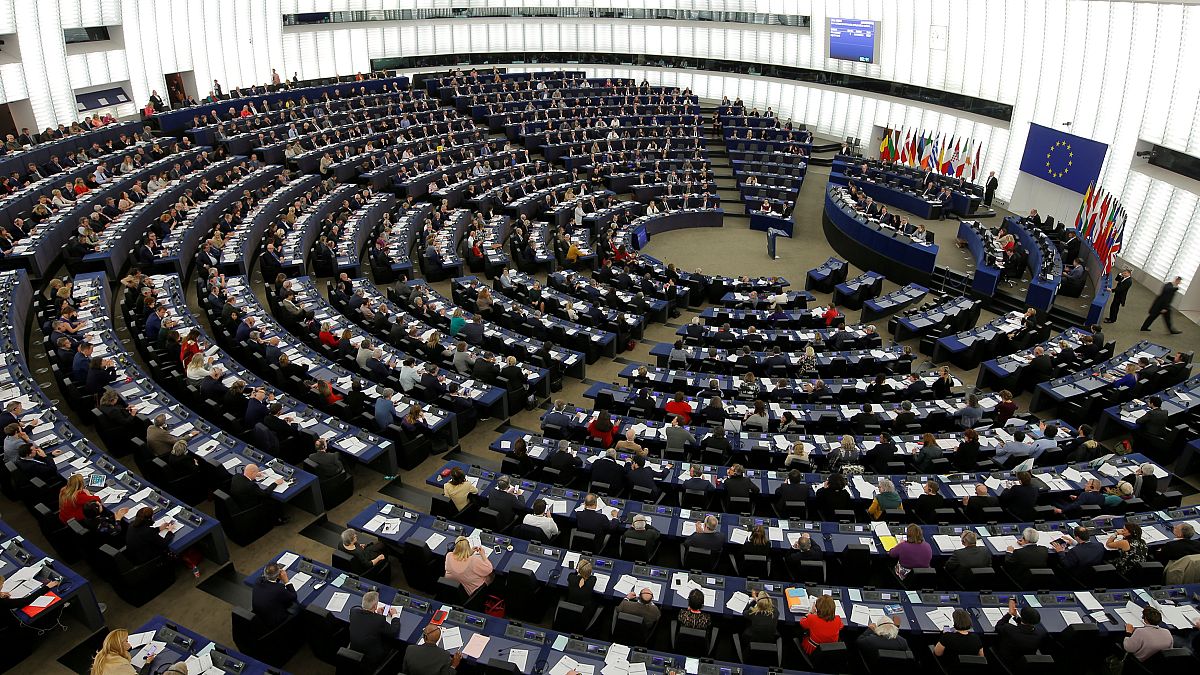Germany and France have the most influential delegations but Italy's Antonio Tajani clinched the top spot.
MEPs from France and Germany have wielded the most influence in the European Parliament over the last five years, according to data from VoteWatch Europe.
Italy's Antonio Tajani, president of the institution, was the most influential member.
VoteWatch Europe produced its ranking of the Top 100 most influential MEPs by looking at attendance data and MEPs' voting patterns. It also made a tally of the number of times MEPs have delivered a speech in plenary session, submitted an amendment or a question to the European Commission or Council of Ministers and whether they were named rapporteur for legislation.
The most influential MEPs
It found that all of the ten most influential MEPs belong to three or the four largest groups in the European Parliament, which are the centre-right European People's Party (EPP), the left-leaning Progressive Alliance of Socialists and Democrats (S&D) and the centrist Alliance of Liberals and Democrats for Europe (ALDE).
"In the EU parliament, since there is no majority and opposition, it is important to be able to build bridges. Whoever demonstrates they can listen and compromise - the bread and butter of EU politics - has more chances to be influent as he/she needs to receive the support of other groups," Davide Ferrari, an analyst at VoteWatch Europe, told Euronews.
"If you belong to a marginal group, your influence will be limited," he added.
Antonio Tajani came out top, while his compatriot, Gualtieri Roberto, who chairs the influential Economic and Monetary Affairs Committee was ranked at number three.
Germany's Manfred Weber, in the running to replace Jean-Claude Juncker as European Commission president, secured the second spot while one of his rivals for the bloc's top job, Belgium's Guy Verhofstadt, is at number nine.
Valean Adina-Ioana is the fourth most influential MEP. The Romanian lawmaker chairs the Committee on the Environment, Public Health and Food Safety and is also a member of the delegation for relations with the United States.
She is followed by Udo Bullmann, the German leader of the S&D group and Austria's Karas Othmar, who chairs the delegation to the EU-Russia Parliamentary Cooperation Committee and is a member of several committees.
Two Spanish MEPs are included in the top 10: Eider Gardiazabel Ribial (7) and Ines Ayala Sender (10), the latter of whom chairs two delegations and is a member of three committees.
Finally, Polish MEP Danuta Maria Hubner is at number eight.
The most influential countries
MEPs from Germany are the more numerous in the ranking, with 22 of them featured among the most 100 influential. France and Italy come next with 11 and 8 of their respective lawmakers making the cut. It is worth noting though that these three countries have the largest delegations in the 751-seat parliament.
According to VoteWatch Europe, France's influence has waned due to the victory in 2014 of Marine Le Pen's far-right Front National Party, which belongs to Europe of Nations and Freedom (ENF) — the smallest of all EU groups.
"No single amendment proposed by the ENF has ever been accepted in a plenary", nor does any of its representatives "hold leadership positions", the report noted.
The UK is in a similar position. Although it has the same amount of MEPs as Italy (73), their influence is limited because the UK Independence Party, which campaigned for the country to exit the bloc, won the most seats in 2014.
Instead, the Netherlands, Poland and Spain, with 7 MEPs each in the ranking, share the fourth spot.
The country with the least influence of all in decision-making seems to be Greece, due to the lack of its representatives in the strongest groups and the fragmentation of its MEPs in minor formations. Meanwhile, Belgium, the Czech Republic and Finland appear to punch above their weight compared to the number of MEPs they each have.
Next parliament
"The next EU parliament will have a turnout rate of approximately 60%, meaning that 40% of MEPs will stay. Who stays has more influence as he/she is already known by colleagues and can receive more important files or dossiers," Ferrari explained.
"ALDE will gain in relevance and relative dimensions of groups will slightly change, but there won't be great changes. As things stand, the nationalist rightwing parties won't play an important role in the next parliament, too, as the sanitary cordon placed around them will continue," he added.
Especially as some populist parties have signalled their intentions to create their own groups, potentially weakening the ENF further. These include Marine Le Pen party which seeks to create a new group with Italy's League party, led by Interior Minister Matteo Salvini.
But the role that France will play in the next hemicycle will depend entirely on how Macron will play its cards. His party is currently leading — although by a whisper — Le Pen's formation.


